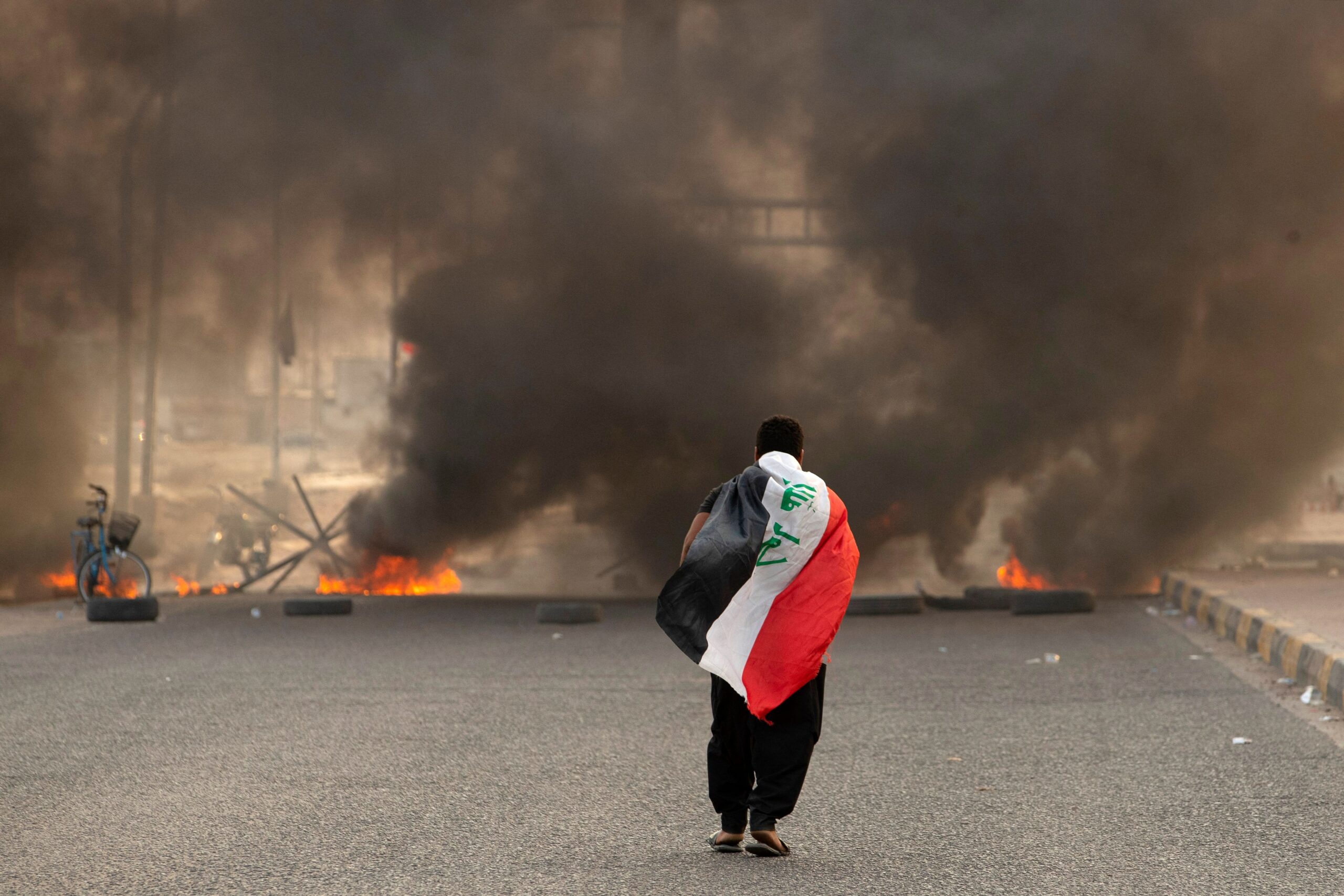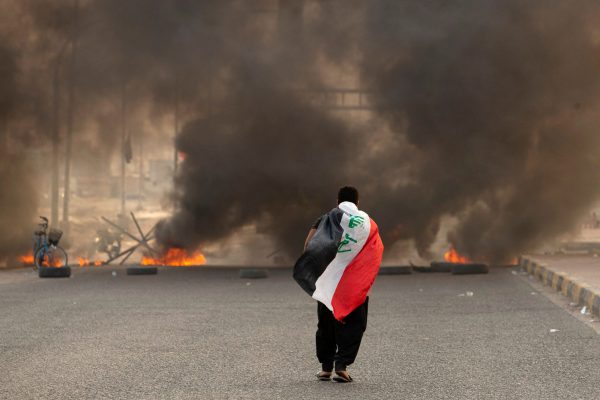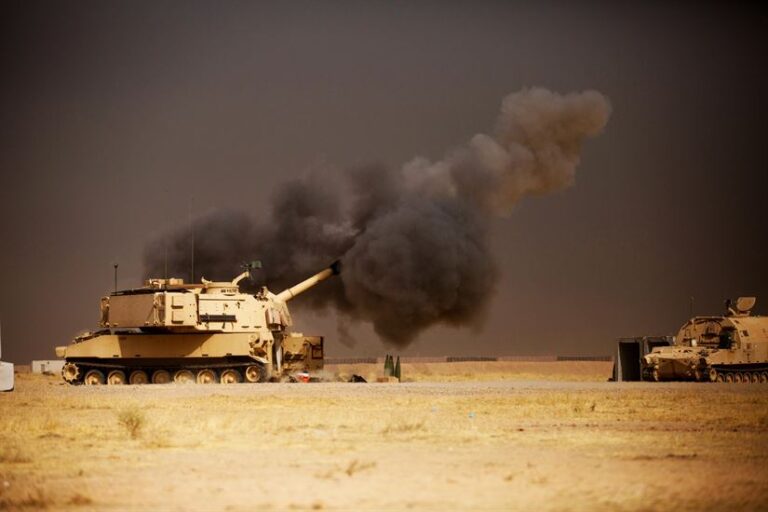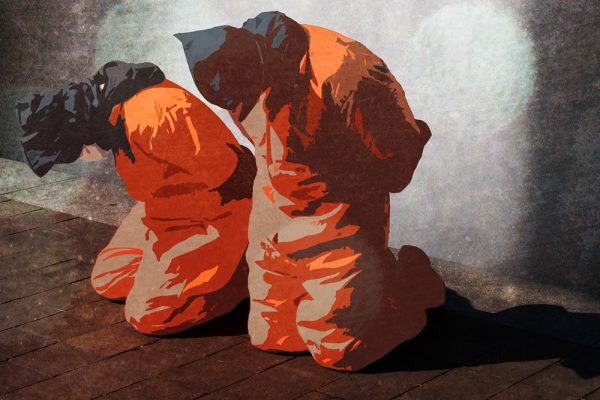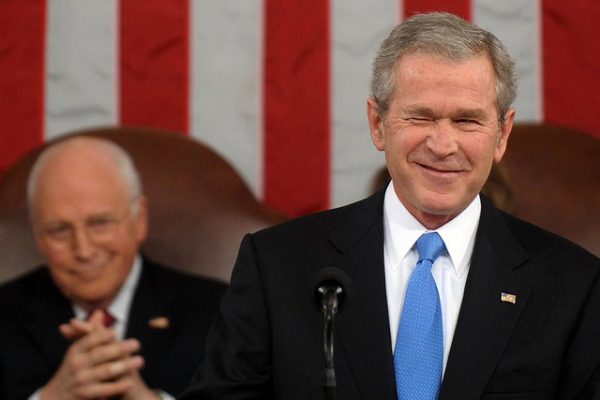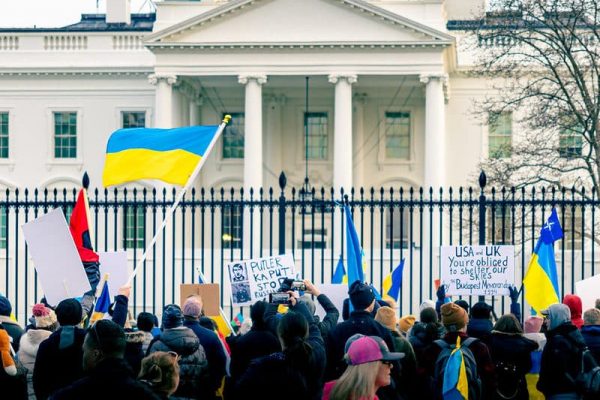Today marks the twentieth anniversary of the U.S. ground invasion of Iraq. Two decades after the George W. Bush administration launched the illegal war—which led to the deaths of many hundreds of thousands of Iraqis and threw the nation into political chaos—the invasion’s catastrophic legacy continues to shape geopolitics.
As critics at the time insisted, the rationale for war was rotten. Despite its advocates’ stated aims of protecting national security and human rights, the war was ultimately motivated by a desire for regime change. Looking to replace frayed Cold War alliances, neoconservatives in the Bush administration thought they could rely on Iraqi Shiites—whom Saddam Hussein had brutally repressed—to transform Iraq and the wider region into a pro-U.S. democratic stronghold.
But the geopolitical ambitions and imperial arrogance of the administration’s neoconservatives far exceeded their grasp of Iraqi history and society. As historian Juan Cole explains in a 2003 essay, by toppling Saddam Hussein, the war’s hapless planners “unleashed a new political force in the Gulf: not the upsurge of civic organization and democratic sentiment fantasized by American neoconservatives, but the aspirations of Iraqi Shiites to build an Islamic republic.”
Describing the rise of Shia cleric Muqtada al-Sadr’s Mahdi army, Nir Rosen, one of the few unembedded journalists to report on the U.S. occupation of Iraq, offers a blow-by-blow account of the violent sectarian strife that gripped the country in the years following the invasion. “The American sectarian approach has created the civil war,” Rosen concludes. “We decided that the Sunnis were the bad guys and the Shias were the good guys. These problems were not timeless. In many ways they are new, and we are responsible for them.”
Featuring contributions from Barry Posen, Elaine Scarry, Simona Foltyn, Andrew Bacevich, Hans Blix, and others, this week’s reading list examines the Iraq War’s far-reaching consequences. In addition to criticizing the war’s motivations and execution, authors scrutinize torture and abuse in the Abu Ghraib prison and elsewhere, condemn the impunity of the executive branch, debate U.S. exit strategy, and draw parallels between the U.S. invasion of Iraq and Putin’s invasion of Ukraine. Together they show how the war in Iraq wrought the world we inhabit today
How the militarization of politics continues to destabilize Iraq decades after the U.S.-led invasion.
Forum
The war as it has evolved badly serves U.S. interests. A well-planned disengagement will serve them much better by reducing military, economic, and political costs.
The new emphasis on WMDs has not been accompanied by any serious public discussion of the differences among such weapons.
Far from a relic of the past, September 11 continues to normalize state-sanctioned barbarity.
It is only by addressing torture through legal instruments—not simply through the electoral repudiation of bad policy—that the grave and widespread damage stands a chance of being repaired.
Forum
For too long we have acquiesced to Islamophobic government policies. The cost of our silence is now clear.
